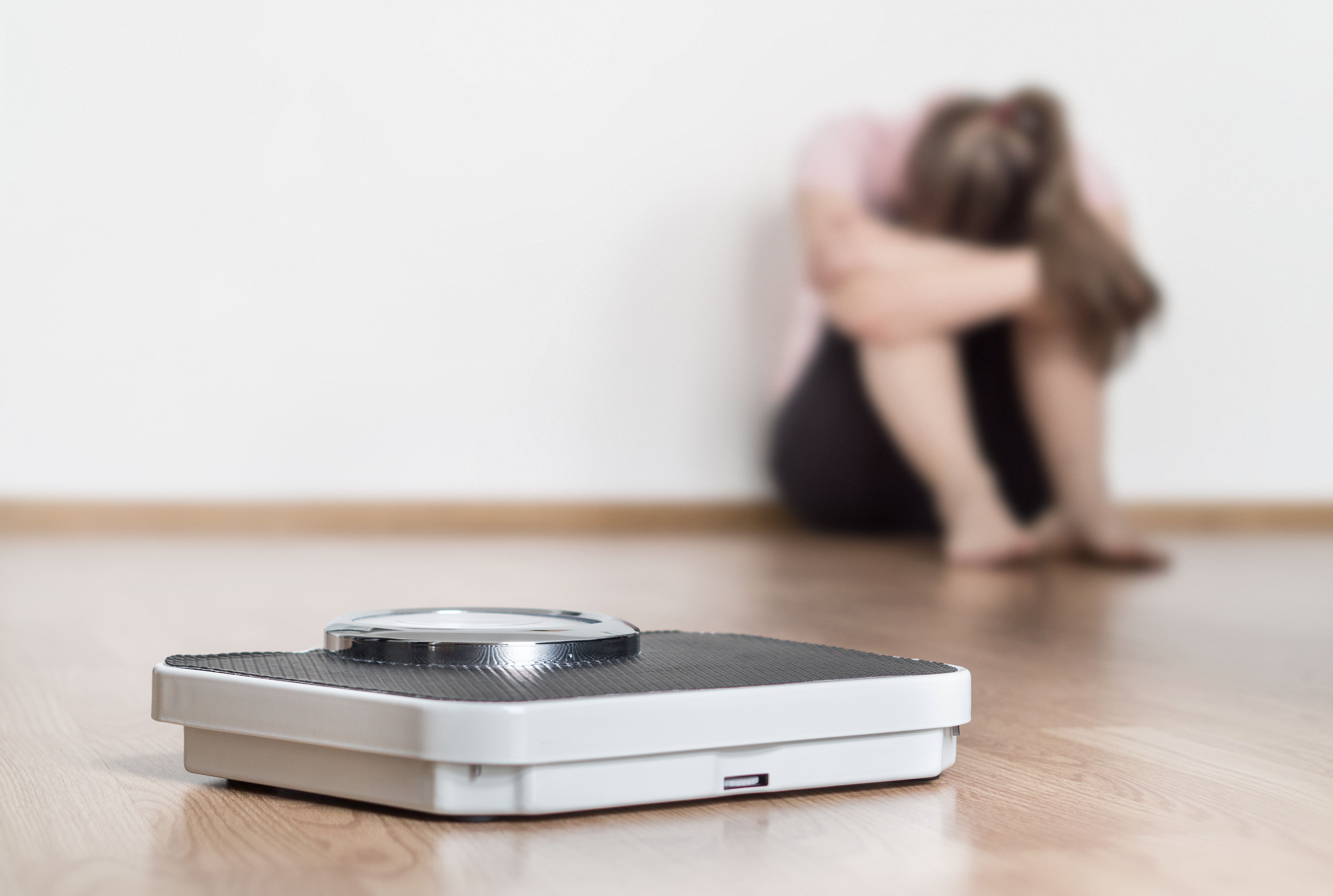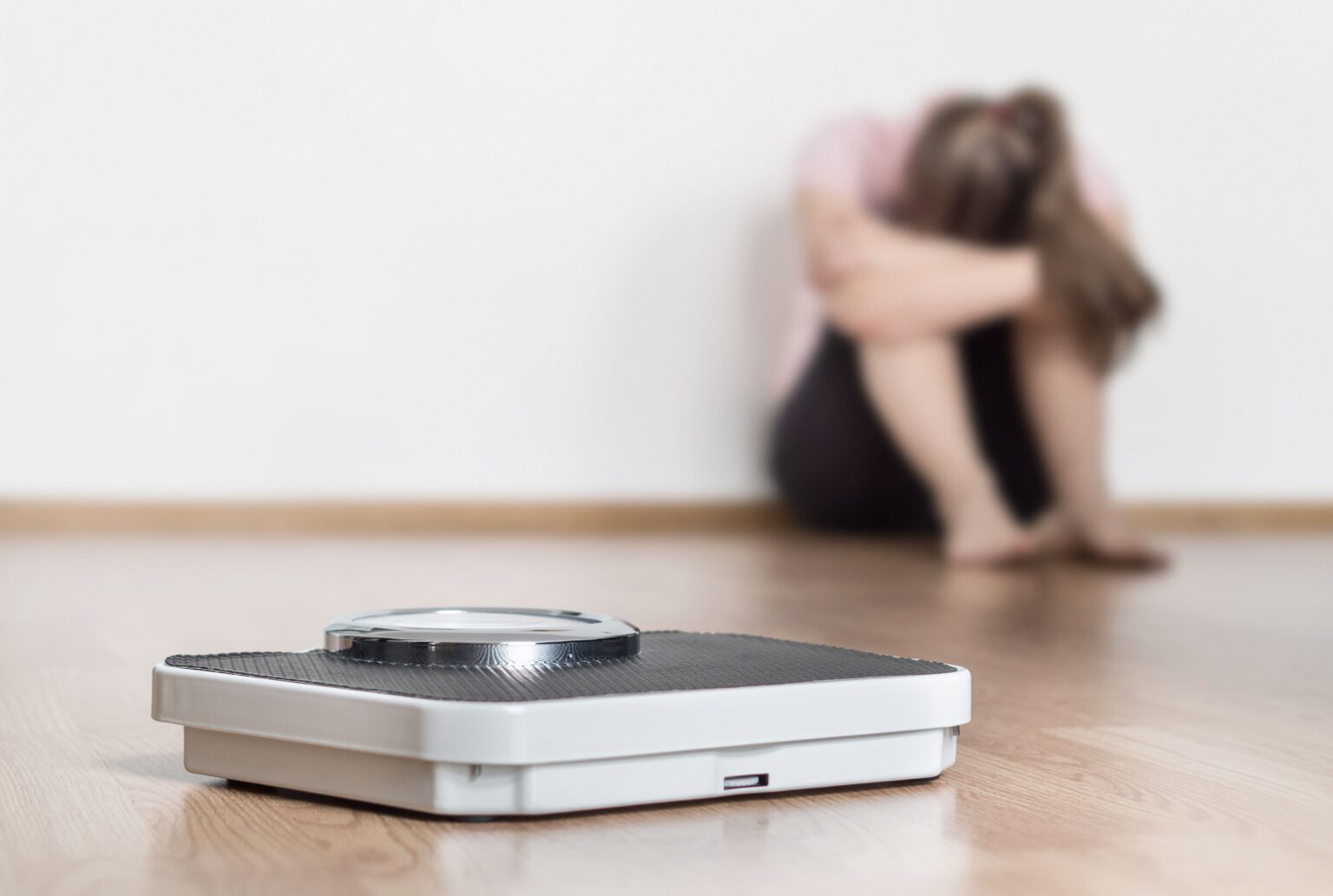terovesalainen/Adobestock

The Reality of an Eating Disorder
Ms Cursor’s essay was honored as part of the 2023 Gerald F. Berlin Creative Writing Contest for its thoughtfulness. Psychiatric Times’ resident poet of 26 years, Richard M. Berlin, MD, established the Gerald F. Berlin Creative Writing Award at the University of Massachusetts Chan Medical School in 2005 to honor the poetry, fiction, and reflective essays of medical students, physicians in training, graduate students, and nursing students from the medical school. Psychiatric Times is delighted to share her work and insights and hopes it serves as reminder of the importance of self-care for medical professionals, including students, as well as a better understanding of the struggles experienced by those with eating disorders.
I stare at the ceiling, having lost track of time. I roll over in the hospital gurney, entangled within a pair of cheap scrubs that are much too big for me. I’m trying hard to sleep but it’s impossible. I’m also hungry; I only had Jello and saltines for dinner because the vegetarian options are sparse here, at least according to the ER nurse whose empathy I am finding increasingly attractive. Inside my room is the gurney, a TV built into the wall, a blanket, and my snack wrappers neatly consolidated on the floor inside a Styrofoam cup. There is no light and nothing on the walls except the TV. The remote is even a keypad built into the wall outside of my room. I want to change the channel, but I am too scared to venture outside, into the common area clustered with other psych patients, all of us waiting for a bed to open in the hospital. I don’t want to be here, but I am not well enough for any alternative.
Sometime within the past twenty-four hours I was admitted to the hospital from McCallum Place Eating Disorder Center. I had been in eating disorder treatment for around a month, and, unable to use my eating disorder to cope for such an extended period of time, my suicidal thoughts grew too loud for me to handle on my own.
I have lived with anorexia nervosa for the past thirteen years. You might look at me and wonder how that’s possible.
I am not emaciated; I do not look sick. This is not to say that there weren’t periods of time when I did appear unwell; however my lowest weight did not correlate with my lowest point mentally. Anorexia—in fact, all eating disorders—are deadly, regardless of weight. The body and mind shrivel while the soul deflates as your sole focus in life becomes food. Eating disorders have the second highest mortality rate of any mental illness. One of the leading causes of death of people with anorexia nervosa is suicide.
While I do not look sick, I still battle daily urges to restrict my food, to run “x” number of miles to allow myself to eat “x” amount, to relish in the feeling of size zero pants slipping from my hips, to retreat back to behaviors like these that brought me so much comfort when inside I feel chaos. My eating disorder is deeply engrained, as are the years of depression, anxiety, and obsessive thoughts it has buried.
A year and a half ago, I started my first year of medical school. If you had asked me then to predict how the year were to unfold, I would not have forecasted any of it. I had taken three GAP years prior to medical school, in part to focus on recovering from my eating disorder. I wasn’t supposed to still be struggling with this, let alone need a leave of absence from medical school to admit myself to eating disorder treatment, nor end up in the hospital as a patient myself.
The first few weeks of medical school were the first time in my life I experienced panic attacks. At first I didn’t know what they were, and I judged myself for having them. How could everyone around me be so calm? Why was I so anxious that I was on the verge of passing out? Well, I wasn’t eating enough. My eating disorder hung on as a coping mechanism to manage all the change that was happening as I transitioned to medical school. It was a way to make me feel safe when I otherwise felt like an imposter. I felt insignificant among my classmates and colleagues, and controlling my body size somehow made me feel better. Restriction provided me with the bursts of serotonin I needed when I was otherwise lonely, overwhelmed, or feeling inadequate. But when you are starving, you become hypoglycemic, diaphoretic, light-headed, anxious.
Two months into medical school, my cousin died suddenly. My family still does not disclose the details, but I do know that his death was from some form of self-harm. I didn’t see my cousin very often, but when our paths did cross, I understood he was struggling. And I struggled, too. My cousin’s death overwhelmed me. I felt as though I could have prevented it somehow, and it precipitated a deep emptiness inside of me. I reached out to one of my mentors in medical school. Her response was to make sure that I was safe with myself. Safe with myself? It had never occurred to me that I could be unsafe with myself. Until that moment.
This became a very sticky thought, and throughout my first year of medical school, it grew more persistent. As its persistence grew, so did its ability to influence my emotions. For the first time, I experienced bouts of depression. And they were scary. I was grieving the loss of my cousin, while also juggling a significant injury to my femur that forced me to drop out of a marathon three days before the race, and still battling my eating disorder. Furthermore, I didn’t just have depression; these thoughts about harming myself were obsessive in nature, and I felt anxiety about having them, further perpetuating their power.
Fast forward to April 2022. My dietitian and therapist suspect that my anxiety is the result of not eating enough, so I try to eat more to alleviate it. But when I stop using my eating disorder to cope, the thoughts that remain are quite grim. I am sitting in my room, fighting back tears as I confess to my therapist over Zoom the thoughts I’ve been having. When I take my antidepressants, I think about taking the whole bottle. When I’m driving, I’m afraid I might drive my car off the road. Questioning my purpose in this world overwhelms me with sadness and confusion. My therapist reassures me: it’s okay, I can get help for this. I can? It doesn’t have to be this way? Later that day, I make the call to McCallum Place Eating Disorder Center and schedule an intake assessment. They can and will help me with my eating disorder, depression, OCD, and anxiety.
At the University of Massachusetts Chan Medical school, there is ongoing construction of a new research building. Excitement has been circulating about this project; as a student, I receive updates at least monthly on the building’s progress. I was even invited to sign the ultimate beam that was placed as part of the scaffolding. I chose not to sign it, as this project serves as a reminder to me of my good friend’s suicide involving a school construction site in college. He was just one of so many people whose life could have been saved if he knew it was okay to get help when he needed it. Each day, as I walk past the building, I make a promise to my friend to see its completion, and make sure that others do, too. Depression and suicide are common among medical providers, even more so in the last decade. It was important that I sought out treatment when I did, even if it meant taking a medical leave with only a month left in my first year of medical school. I am so grateful that my therapist recognized the signs that I needed more support and helped me take the steps to pause my school obligations and put my life first. Treatment helped me immensely to develop coping skills outside of my eating disorder to manage my depression, anxiety, and OCD. It also helped me pharmacologically to experiment with medications in a safe setting to begin to find what works best for me. I met so many people of all different backgrounds who struggled in similar ways that I did, and this helped me feel so much less alone.
I hope that by sharing my story, I can help others recognize when they themselves or their loved ones are struggling. And that no matter who you are, it is more than okay to ask for help. Getting help for mental health should be no different than seeing a doctor for a physical ailment. Let’s keep having these conversations, destigmatize mental illness, and start saving lives.
Ms Cursor is a pseudonym for the author, who chose to use such to prevent future prejudice. She is a medical student, anticipating graduation with the class of 2026.

